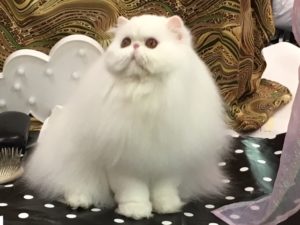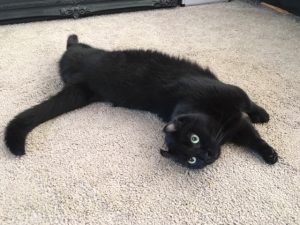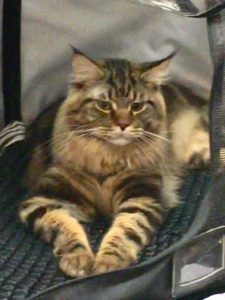 Earlier this week we talked about cat breeds from all over the world—some of them are derived from mutations and forced breeding experiments. What happens when we aren’t careful with breeding programs or when we exploit a mutation? We can get genetic issues.
Earlier this week we talked about cat breeds from all over the world—some of them are derived from mutations and forced breeding experiments. What happens when we aren’t careful with breeding programs or when we exploit a mutation? We can get genetic issues.
I know a beautiful, lovable munchkin —actually a kinkalow-munchkin—who is being treated for a liver infection. I began to wonder if the munchkin and/or the kinkalow is prone to liver problems.
—actually a kinkalow-munchkin—who is being treated for a liver infection. I began to wonder if the munchkin and/or the kinkalow is prone to liver problems.
I thought today we’d explore weaknesses in cat breeds. If we don’t want to watch a cat suffer and we can’t afford large vet bills, maybe we should do a DNA test on even our shelter cats before we adopt—I’m just  saying… If we discover the cat has a lot of a particular breed in its DNA, we might choose another cat that may not have the issues that are often found in these breeds.
saying… If we discover the cat has a lot of a particular breed in its DNA, we might choose another cat that may not have the issues that are often found in these breeds.
The Siamese and the Persian, for example have lists of potential genetic issues, including those related to the liver and heart. The Maine coon is just one of quite a few breeds that’s prone to hip dysplasia. The Himalayan is thought to be at risk of developing kidney disease along with several other problems. The British shorthair is genetically sensitive to hemophilia—a bleeding disorder. If you’re interested in what you should be watching out for as far as potential health issues with your particular cat, here’s an excellent site to study.
https://ahrdvm.com/articles/client-education/articles/genetic-diseases-in-purebred-cats





